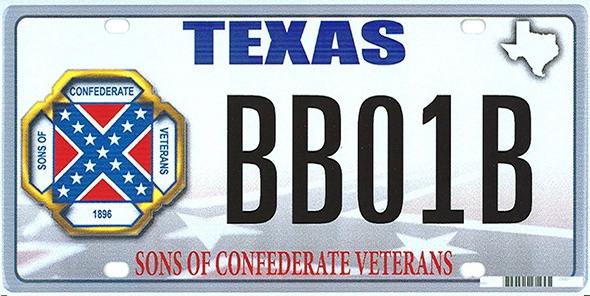On Thursday, the Supreme Court held that Texas may refuse to make a specialty license plate that displays a Confederate flag. The case arose after the Texas Division of the Sons of Confederate Veterans (SCV) asked Texas to make such a plate as part of the state’s specialty license plate program. When the state refused, the SCV sued, asserting that Texas had violated its First Amendment right to free speech.
The court rejected the SCV’s claim by a vote of 5-to-4. According to the court, Texas is not “simply managing government property” when it creates specialty plates, “but instead is engaging in expressive conduct.” Because license plates “constitute government speech,” the state can choose which designs to accept and which to reject, and private citizens cannot compel the state to print a certain design.
In an uncharacteristically humorous dissent, Justice Samuel Alito tore into the majority’s reasoning. Upon seeing a Texas plate that reads “Rather Be Golfing,” Alito asks, would anyone really think, “This is the official policy of the State—better to golf than to work?” If you saw a Texas license plate supporting Notre Dame, “would you assume that the State of Texas was officially (and perhaps treasonously) rooting for the Longhorns’ opponents?” Alito’s point is that even though the government produces the plates, individuals design them, adding personalized expression that the First Amendment would usually protect. And due to the variety and ubiquity of these plates, no rational person could assume that they represent the government’s speech. Thus, according to Alito, specialty license plates are private speech that deserve robust First Amendment protection.
The case is notable for three more reasons. First, Alito rarely defends individualized expression—he is, in fact, the court’s fiercest foe of free speech. Second, Justice Clarence Thomas joined the four liberals to cast the deciding vote, a rare move he has not made in a high-profile case since 2013’s Alleyne v. United States. Third, the decision will likely have serious ramifications for the abortion debate. One federal court has already allowed a liberal state to ban “Choose Life” license plates while permitting pro-choice license plates. Conservative states will likely begin to do the opposite—banning pro-choice plates while permitting anti-abortion ones. That doesn’t look like government speech in action. It just looks like censorship.
